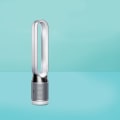When it comes to air filtration, there are two main types of filters: HEPA and standard air filters. While both are designed to remove particles from the air, there are some key differences between them.
HEPA
filters are designed to capture particles as small as 0.3 microns, while standard air filters can only capture particles up to 10 microns in size. Additionally, HEPA filters are more efficient at trapping particles, meaning they can remove more allergens and pollutants from the air.However, they can also reduce airflow, which can affect the performance of tools or machines.A HEPA filter is an air filter for fibrosis that is generally made of plastic (polypropylene) fibers, glass fiber, or borosilicate glass fibers. It is a type of pleated mechanical air filter known as a high-efficiency particulate air filter and refers to its measurement of air quality cleanliness developed by the Department of Energy (DOE) after the Manhattan Project in the 1940s. True HEPA filters are designed to capture 99.97% of particles as small as 0.3 microns, making them ideal for removing allergens, dust, smoke, and other pollutants from the air.Unfortunately, because of the trademark, a HEPA type filter can be sold under the pretext of deceiving consumers into believing that the HEPA type is similar or as effective as the real HEPA. While most allergenic particles are large enough to be trapped by a HEPA filter, very small fragments can penetrate the filter and remain in the air.
As you may have read, the CDC guidelines on COVID-19 recommend using at least one MERV 13 filter in air conditioning systems.If you're concerned about other sources of indoor air pollution, such as volatile organic compounds, viruses, and bacteria, you may need a different solution than HEPA alone. Greater efficiency means eliminating the smallest particles without prohibitively reducing airflow, which could affect the operation of the tool or machine. Nowadays, almost all HEPA filters are equipped with additional filtration technologies such as activated carbon.The only difference between True HEPA and HEPA type filters is that True HEPA filters claim to remove more than 99.97% (but less than 100%) of 0.3 micron sized particles. Therefore, they are unlikely to have a performance equivalent to that of HEPA-designated filter systems used in sanitary buildings and industrial processes.Accredited air purifier companies that have filter-based units should clearly state their MERV rating or clearly state the size of the particles and the type of contaminants their products may contain.
This will help you make an informed decision when it comes to choosing an air purifier with True HEPA. It is important to understand that not all air purifiers are created equal and that some may not be able to provide adequate protection against airborne contaminants.



